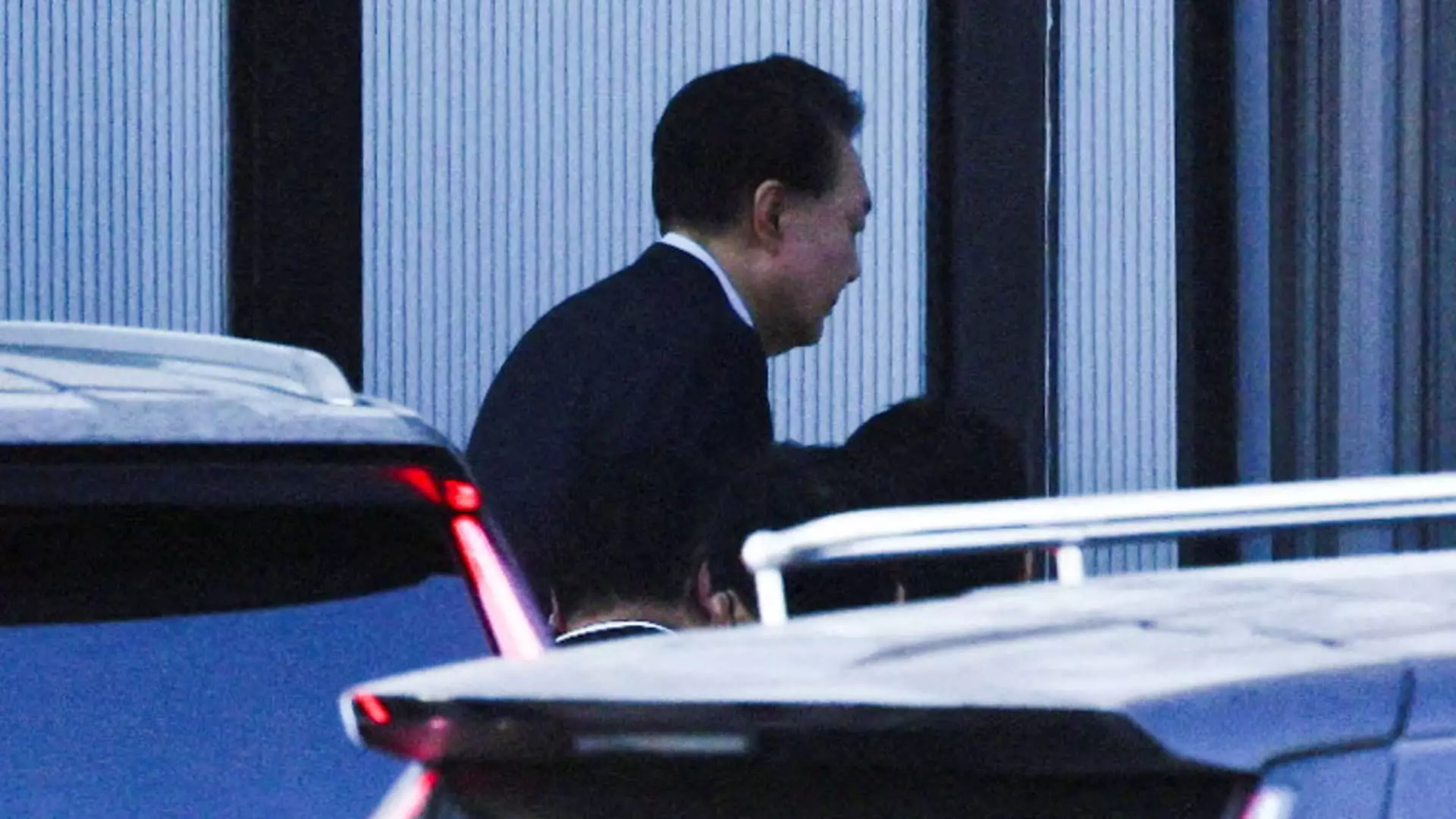In a dramatic turn of events, South Korea finds itself grappling with the unprecedented arrest of its former president, Yoon Suk Yeol. For the first time in the nation’s history, a sitting president has faced criminal charges, igniting fierce debates about legality, governance, and the nation’s future. Yoon’s judicial battle commenced in earnest with a recent court hearing focused on whether to extend his detention amid allegations of insurrection. This event marks a significant moment in South Korean politics, reflecting not just on Yoon’s leadership but the very fabric of the country’s democratic values.
Yoon’s downfall is rooted in accusations surrounding his controversial declaration of martial law on December 3. This action spurred significant backlash and led investigators to view it as a potential insurrection. The Corruption Investigation Office for High-ranking Officials, tasked with probing the allegations, sought to keep Yoon in custody for an additional 20 days, emphasizing the gravity of the charges. Since his arrest, Yoon has largely remained silent, which raises questions about his strategy and the broader implications of his case for future presidents in South Korea, who historically have enjoyed a measure of legal protection from prosecution.
The courtroom became a stage for high tensions as Yoon attended the proceedings at the Seoul Western District Court. The hearing extended nearly five hours, with Yoon reportedly speaking for about 40 minutes. His defense sought to shed light on the legitimacy of his martial law declaration, arguing that the essential elements of insurrection were not present. After the session, Yoon’s lawyer expressed optimism, asserting that they foresee a just resolution from the court. This moment was not just about Yoon’s fate; it encapsulated a struggle over the narrative surrounding leadership and accountability in South Korea.
Outside the courtroom, public sentiment starkly divided along political lines. Yoon’s supporters gathered en masse, demonstrating an unwavering belief in his innocence and championing the concept of the rule of law. Their presence was palpable, with thousands chanting for his release, underscoring the deeper emotional and political stakes at play. As police intervened to maintain order, instances of unrest unfolded, reflecting a populace driven by passion and polarized opinions on governance and justice. The fervor surrounding Yoon’s case has led to multiple arrests, showcasing the raw volatility of public discourse.
Yoon’s situation serves as a litmus test for South Korea’s political climate, particularly regarding the legal boundaries that protect leaders from accountability. The charges he faces could set a precedent for how future leaders are treated under the law, potentially ushering in a new era of political transparency – or further entrenching divisions within a fragile democracy. As the nation awaits the court’s verdict, the implications of this historic case will undoubtedly resonate for generations, influencing how South Koreans view their leaders and the very nature of their democracy.


Leave a Reply